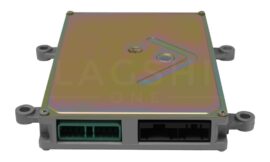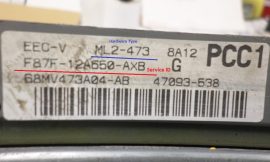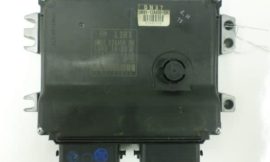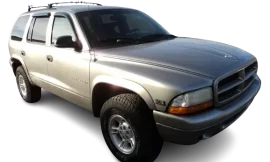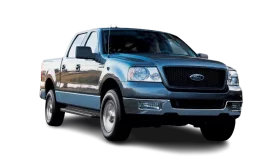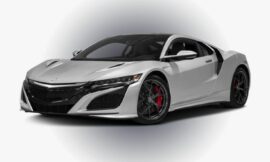Last updated on November 1st, 2024 at 11:32 am
The Engine Control Unit (ECU) is the brain of any Acura vehicle, controlling various aspects such as fuel mixture, ignition timing, and idle speed. It acts as the hub of all operations, ensuring your car runs efficiently and smoothly. However, choosing the right ECU for your specific Acura model can be a challenging task. Various factors such as the model, year, and specifications need to be taken into consideration.
This guide aims to make the process easier by providing you with the necessary information to make an informed decision. It will explore the different types of ECUs available for Acura models, discussing their features, benefits, and installation processes. Following this guide will assure you choose the best ECU for your Acura, enhancing its functionality and performance.
Understanding ECU Compatibility
ECUs can differ significantly between Acura models. Each model and year has its unique specifications and requirements that the ECU must meet to ensure optimal performance. For instance, an ECU designed for an Acura MDX may not be compatible with an Acura RLX due to differences in engine configuration and electronics.
Choosing a compatible ECU is of paramount importance. An incompatible ECU can result in various problems, from minor inconveniences like poor fuel efficiency to major issues such as engine misfires or complete vehicle shutdown. In some cases, an incompatible ECU may not even fit into the vehicle’s engine bay. Therefore, when selecting an ECU, it’s crucial to verify its compatibility with your specific Acura model and year. At Flagship One, Inc., we provide detailed product listings to assist customers in choosing the ECU that best fits their vehicle’s specifications.
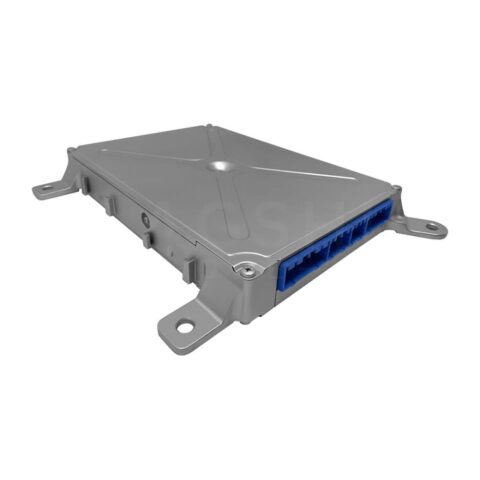
Key Features to Consider when choosing an ECU for Your Acura
When you’re choosing an ECU for your Acura, several key features are vitally important to consider. These features can significantly impact the performance, reliability, and efficiency of your Acura.
Processing Speed
The processing speed of the ECU determines how quickly it can interpret and respond to incoming data from the engine’s sensors. Faster processing speeds lead to more accurate control over engine functions and, ultimately, better overall performance.
Adaptability
An adaptable ECU is capable of learning and adjusting to changes in the engine’s behavior over time. This feature improves the reliability and longevity of your Acura as it can adapt to engine wear and external conditions like altitude and temperature.
Compatibility
The ECU must be fully compatible with your specific Acura model and year. Compatibility ensures that the ECU can accurately control and optimize all of the engine’s functions.
Fuel Mapping
The ECU’s fuel mapping capabilities should be advanced enough to allow precise control over the fuel injection system. This control affects the efficiency and performance of your Acura, with better fuel mapping leading to improved fuel consumption and lower emissions.
By carefully considering these key features when choosing an ECU, you can significantly enhance the performance and reliability of your Acura. Consider consulting with a professional or relying on trusted providers like Flagship One, Inc. to ensure you’re making the best choice for your specific model and needs.
Price vs. Quality: Acura Edition
The price of Acura-compatible ECUs can vary greatly, typically ranging from $200 to over $1000. This broad price range reflects differences in the product’s features, complexity, brand, and whether the unit is new or remanufactured. While it may be tempting to opt for a cheaper ECU, it’s important to remember that cost and quality often go hand in hand in the automotive world.
Lower-priced ECUs may lack advanced features such as high-speed processing or adaptable fuel mapping, which can crucially impact your Acura’s performance and efficiency. They may also be less reliable over the long term, potentially leading to higher costs down the line due to malfunctions or required replacements.
On the other hand, higher-priced ECUs usually offer the latest technology, delivering optimal performance and reliability. They can improve your Acura’s fuel efficiency, power, and longevity, ultimately saving you money in the long run by reducing maintenance and fuel costs.
Balancing cost and quality requires careful consideration of your specific needs and budget. If high performance and long-term reliability are your priority, investing in a high-quality ECU may be worth the higher upfront cost. However, if you’re on a tight budget and need a quick fix, a lower-priced ECU could be a viable option.
Remember, at Flagship One, Inc., we offer a wide range of Acura-compatible ECUs, catering to various price points without compromising on quality. Our team of experts is always ready to help you choose the perfect ECU for your Acura based on your specific needs and budget.

Where to Buy: Trusted Sources
When it comes to purchasing a reliable ECU for your Acura, choosing a reputable seller is as crucial as selecting the right ECU. Several trusted sources provide quality ECUs designed to perfectly suit your Acura model.
- Authorized Dealerships: Authorized dealerships are a safe bet when looking for genuine Acura ECUs. They offer products directly from the manufacturer, ensuring authenticity and full compatibility with your Acura model.
- Online Marketplaces: Platforms like Amazon and eBay host a wide array of sellers offering Acura ECUs. However, remember to pay attention to seller ratings and reviews to ensure quality and reliability.
- Specialized Auto Parts Stores: Stores that focus solely on automotive parts can offer a range of ECUs from different manufacturers. Staff at these stores can provide personalized guidance based on your specific needs.
- Flagship One, Inc.: As a trusted source in the automotive industry for over a decade, we at Flagship One, Inc. specialize in OEM control modules. Our ECUs are guaranteed for compatibility, quality, and reliability. We offer a wide array of modules suitable for various Acura models, each extensively tested to ensure optimal performance. Whether you’re seeking an ECU for an Acura MDX or RLX, our comprehensive listings and expert team can guide you to the right choice. Our commitment to excellence makes us the preferred choice for numerous Ford, Jeep, and Chrysler dealerships worldwide, and we extend the same level of service to all our Acura customers.
In conclusion, selecting the right ECU for your Acura is a decision that requires thoughtful consideration of several key factors. The processing speed, adaptability, compatibility, and fuel mapping capabilities of the unit are all essential to ensure optimal performance and reliability of your vehicle. Price and quality are interlinked in this choice, and while budgetary constraints may influence your decision, remember that investing in a high-quality ECU can result in long-term savings through improved fuel efficiency and reduced maintenance costs.
Choosing a reputable seller is equally important. Authorized dealerships, specialized parts stores, and online marketplaces can all provide ECU options. However, at Flagship One, Inc., we specialize in OEM control modules and offer a wide range of ECUs specifically designed for various Acura models. Our decade-long presence in the automotive industry is a testament to our commitment to quality, reliability, and customer satisfaction.
Ultimately, the goal is to enhance the performance, efficiency, and longevity of your Acura. Making an informed choice about your ECU can significantly contribute to achieving this goal. At Flagship One, Inc., we’re here to guide you through this process and ensure you make the best possible choice for your vehicle and your needs. Take the next step towards enhancing your Acura’s performance today.
DIAGNOSTIC TROUBLE CODES THAT RELATES TO THE PCM
Diagnostic Trouble Codes (DTCs) are codes that are stored by a vehicle’s on-board diagnostic (OBD) system when it detects a fault with the vehicle’s powertrain system.
P0100: Mass or Volume Air Flow Circuit Malfunction
P0101: Mass or Volume Air Flow Circuit Range/Performance
P0102: Mass or Volume Air Flow Circuit Low Input
P0103: Mass or Volume Air Flow Circuit High Input
P0110: Intake Air Temperature Circuit Malfunction
P0113: Intake Air Temperature Sensor 1 Circuit High
P0172: System Too Rich (Bank 1)
P0120: Throttle/Pedal Position Sensor/Switch “A” Circuit Malfunction
P0130: Oxygen Sensor Circuit Malfunction (Bank 1, Sensor 1)
P0131: Oxygen Sensor Circuit Range/Performance (Bank 1, Sensor 1)
P0132: Oxygen Sensor Circuit High Voltage (Bank 1, Sensor 1)
P0133: Oxygen Sensor Circuit Slow Response (Bank 1, Sensor 1)
P0134: Oxygen Sensor Circuit Intermittent (Bank 1, Sensor 1)
P0135: Oxygen Sensor Circuit Malfunction (Bank 1, Sensor 2)
P0136: Oxygen Sensor Circuit Range/Performance (Bank 1, Sensor 2)
P0137: Oxygen Sensor Circuit Low Voltage (Bank 1, Sensor 2)
P0138: Oxygen Sensor Circuit High Voltage (Bank 1, Sensor 2)
P0139: Oxygen Sensor Circuit Intermittent (Bank 1, Sensor 2)
P0140: Oxygen Sensor Circuit Malfunction (Bank 2, Sensor 1)
P0141: Oxygen Sensor Circuit Range/Performance (Bank 2, Sensor 1)
P0142: Oxygen Sensor Circuit Low Voltage (Bank 2, Sensor 1)
P0143: Oxygen Sensor Circuit High Voltage (Bank 2, Sensor 1)
P0144: Oxygen Sensor Circuit Intermittent (Bank 2, Sensor 1)
Here is a list of some diagnostic trouble codes (DTCs) that begin with the letter “U” and could potentially indicate a fault with the powertrain control module (PCM) in a vehicle:
U0100: Lost Communication with Engine Control Module/Powertrain Control Module
U0101: Lost Communication with Transmission Control Module
U0102: Lost Communication with Transfer Case Control Module
U0103: Lost Communication with Throttle Actuator Control Motor Circuit
U0104: Lost Communication with Throttle Actuator Control Motor Circuit Range/Performance
U0105: Lost Communication with Throttle Actuator Control Motor Circuit Low
U0106: Lost Communication with Throttle Actuator Control Motor Circuit High
U0107: Lost Communication with Throttle Actuator Control Motor Circuit Intermittent
U0108: Lost Communication with Throttle Actuator Control Motor Circuit Open
U0109: Lost Communication with Throttle Actuator Control Motor Circuit Short to Ground
U0110: Lost Communication with Throttle Actuator Control Motor Circuit Short to Battery
U0111: Lost Communication with Throttle Actuator Control Motor Circuit Short to Power
U0112: Lost Communication with Throttle Actuator Control Motor Circuit Short to Ground
U0113: Lost Communication with Throttle Actuator Control Motor Circuit Short to Battery
U0114: Lost Communication with Throttle Actuator Control Motor Circuit Short to Power
U0115: Lost Communication with Throttle Actuator Control Motor Circuit Failure
U0116: Lost Communication with Throttle Actuator Control Motor Circuit Range/Performance
Note: These codes are just a small sample and there are many other DTC codes that could potentially indicate a fault with the PCM. Additionally, the specific codes that are relevant will depend on the make and model of the vehicle. It is important to consult the vehicle’s service manual or a professional mechanic for more information about interpreting DTC codes.



